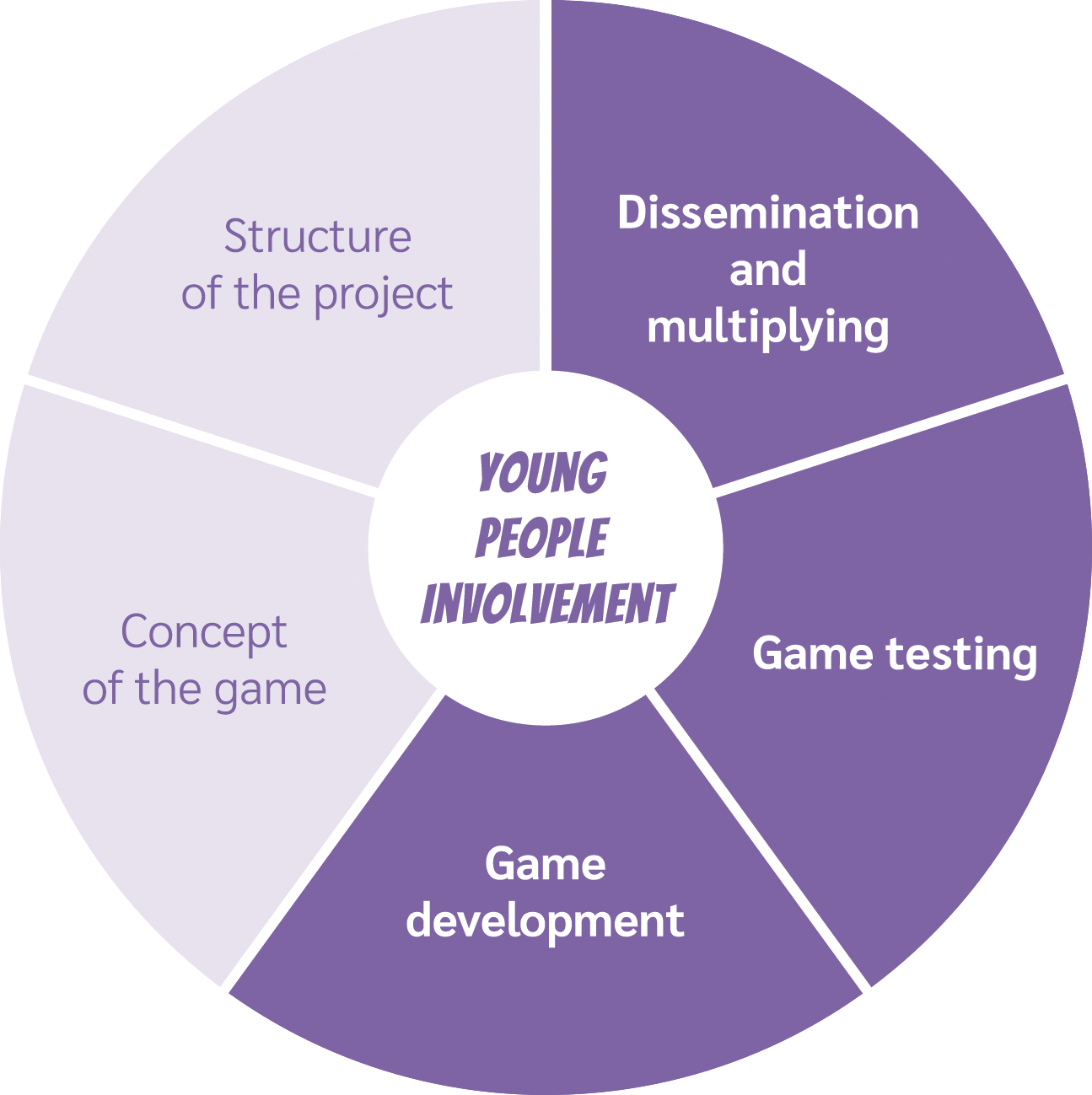8
GameON: Educational game design. Methodological Models
GameON: Educational game design. Methodological Models
Conținut
This playlist will help you familiarise yourself with the methodological models that could be used in the game design process. These methodological models were developed during the GameOn good practice mapping phase we asked 23 facilitators of game design and interviewed extensively 10 of them in the podcast series “Unfolding Game Design” where we got to know more about the different approaches used in the game design journey.
Complete playlist activities to learn about:
- Methodological models that could be used in the game design process.
- Discover the educational games developed according to one of the presented models.
- Reflect upon the models that could be used in your environment with your target group.
Follow the following playlist activities to develop your understanding of methodological models that could be used in the game design process. Start by watching this introductory video:
The international partnership “GameOn” created this playlist to promote inclusion, participation, and critical thinking through game design. Learn more about this partnership here.
Expert partners:
Nexes (ES) – the lead partner, Idealúdica (ES), Universitat de Barcelona (ES), BalkanIdea Novi Sad (SR), Nectarus (LT), Associazione Interculturale NUR (IT).
Co-funded by the Erasmus+ Programme of the European Union
Cover image from Unsplash.
Activități de finalizat
Finalizează următoarele activități, câștigă insigne și vei vedea progresul playlistului tău actualizat
Conținut
Based on our research, the GameOn partners produced seven models to approach game design. The Collaborative approach is one of them. Watch the following video explainer to learn more about this model:
Usually, the collaborative process is applied in non-formal education settings. Young people get involved in some development phases of the one and only educational game related to a theme selected by the promoters.
The primary goal is to develop participants' competences related to inclusion and create a game that promotes social inclusion and transformation among other young people.
Following a collaborative approach, young people get involved in the following game design stages:

Collaborative game design has unique features.
Process
Usually, young people get involved in collaborative work through a guided and planned participation process. The project can sometimes involve training to develop game dynamics or game content.
Promoters select the game topic. The testing phase is an essential part of the process, as well as the game use and dissemination.
Such a game design approach lasts from 15 to 20 months. It involves different participant groups who create and test one unique game.
Participants
Youth workers of leading organisations, professionals or institutions involved in creating and testing the game, professionals to produce the game, and in some cases, expert trainers.
Other actors
Youth workers of leading organisations, professionals of institutions involved to create and test the game, professionals to produce the game, and in some cases expert trainers.
Structure
Usually, the collaborative game design is developed by professionals, for example, individuals, staff members, and workers in organisations and institutions or youth centres. Young people participate only to deliver specific tasks in particular phases.
Guidance
Group facilitators and non-governmental organisations staff members facilitate the process.
Competences
These are some personal, social and civic competences young people can develop in Collaborative game design projects.

Examples
This activity is part of the wider educational effort of the international partnership “GameOn” to promote inclusion, participation, and critical thinking through game design. Learn more about this partnership here.
Expert partners:
Nexes (ES) – the lead partner, Idealúdica (ES), Universitat de Barcelona (ES), BalkanIdea Novi Sad (SR), Nectarus (LT), Associazione Interculturale NUR (IT).
Co-funded by the Erasmus+ Programme of the European Union.
Cover image from Unsplash.
Resurse
Obțineți insigna de activitate
GameON: Educational game design. Collaborative model Obțineți această insignă
Owners of this badge learned more about the Collaborative game design model and reflected upon the existing game design practice and their own experience.
The evidence of completing this activity is included in the badge and was reviewed and verified by the organisers.
This activity is part of the wider educational effort of the international partnership “GameOn” to promote inclusion, participation, and critical thinking through game design. Learn more about this partnership here.
Tasks
Task no.1
Evidence verified by: auto-aprobare
Share your thoughts on the following questions to earn the activity badge:
What elements of the Collaborative model did you discover?
Could this game design model be used in your educational work with your target group?
Activități: 7
Started: 43
Listă de activități finalizată: 1
Share:
Organizatori
GameOn - Game Design for Inclusion
Badgecraft găzduiește această platformă și o dezvoltă împreună cu organizații educaționale de top. Programul Uniunii Europene Erasmus+ a acordat cofinanțare pentru construirea primei versiuni a acestei platforme. Contactați support@badgecraft.eu.
Platformă
Schimbați într-o altă limbă:

